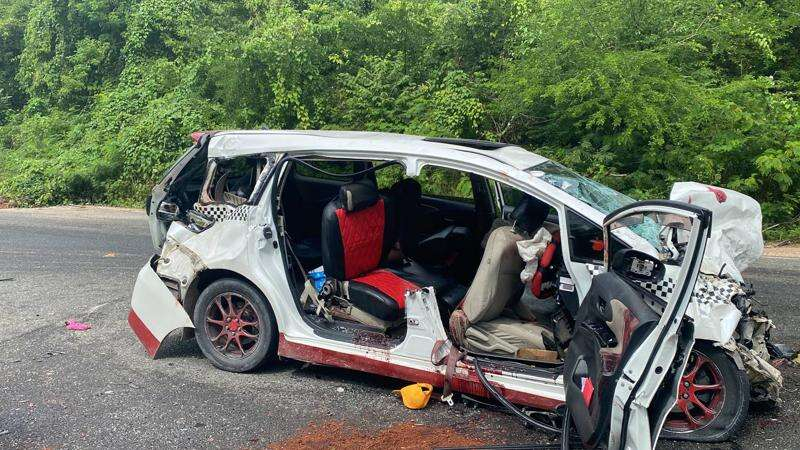JAMAICANS are being warned that the country could experience what is being described by National Road Safety Council (NRSC) Vice-Chairman Dr Lucien Jones as a tsunami of road deaths if crashes continue unabated, particularly during the Christmas period when recklessness tends to increase among road users.
Dr Jones argued that resources need to be put in place now to prevent the worst, given that the new road traffic laws are not expected to come into force for the remainder of the year.
The most recent crash report from the transport ministry's Road Safety Unit (RSU) shows that up to Monday there were 365 crashes, resulting in 419 deaths.
This compares to 413 deaths from 370 crashes for the similar period of 2021, when the country recorded 487 road fatalities, the highest number ever recorded in one year.
"What this means is that if we don't take serious measures to curb the carnage on the roads we are going to exceed possibly the record number of people who died last year," Dr Jones said.
Comparing third-quarter data, Dr Jones said that in 2021 a total of 131 people died. "So far this year — and we have the rest of November and December to come — 62 people have died. So it means that there is going to be a tsunami of road deaths if we don't stop."
The RSU says excessive speed with no regard to conditions is the leading cause of crashes, with 114 such incidents so far this year, and 133 last year. The second-highest cause of collisions is motorists failing to keep to the proper traffic lane, followed by pedestrians walking or standing in roads. People in the 25-29 age group account for the majority of those killed so far this year.
Dr Jones said at this point, there are only two obvious means to stop the carnage — enforcement and intense public education. "That's it. It's unlikely that we are going to have the provisions of the new road traffic act rolled out for this year for it to make an impact. It is unlikely that the long-awaiting ticketing system is going to be rolled out for it to have an effect for this year. It therefore means that a lot will depend on the police to enforce the current laws of the country, and for us — through the media, one on one, community, public utterances, and organised campaigns — to try to put a stop to the madness which continues on our roads daily."
He said the entire country, by year-end, needs to be resourced and galvanised to prevent the bloodletting on the nation's roads.
"We all know that people tend to drive more recklessly, drink more, are on the roads [more], don't wear helmets, don't use seatbelts, and do all kinds of things during the Christmas period. So we have a challenge," he stated.
Dr Jones' remarks come days after the NRSC joined the international community in the observance of November 20 as World Day of Remembrance for the millions of people who perish in road crashes annually. The day was adopted on October 26, 2005 by the United Nations General Assembly as "the appropriate acknowledgement for victims of road traffic crashes and their families".
The occasion provides a platform for victims and their families to acknowledge the work of the emergency services; brings attention to the generally inadequate legal response to culpable road deaths and injuries and advocate an appropriately serious response; advocates better support for road traffic victims and victims' families; and promotes evidence-based actions to prevent and eventually stop further road traffic deaths and injuries.
This year, World Day of Remembrance focused on justice, traffic law enforcement, and the thorough and consistent investigation of crashes, to examine whether a crime was committed, and bring criminal prosecution where appropriate and civil compensation.

